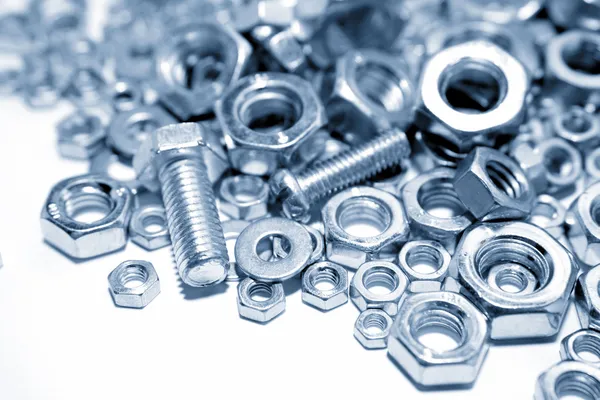Fasteners and Screws in Daily Life: More Than You Expect
As you think about the elements that keep our environment together, nuts and bolts may not be the first things that come to thought. Still, these basic yet vital components play a crucial role in a variety of applications, ranging from the furniture we sit on to the cars we operate. Understanding the variety and function of these fasteners can significantly enhance our ability to tackle DIY projects, engage in home improvement tasks, or even perform regular automotive repairs.
In this comprehensive guide, we shall explore the many types of fasteners available, delving into their specific applications and advantages. If you are a experienced constructor or a interested novice, this guide aims to equip you with the information you need to choose the appropriate fasteners for your projects. Let us dive into the intriguing world of these fasteners and uncover how these modest components are more important in our everyday lives than we might realize.
Comprehending Bolts and Nuts
Fasteners and nuts are crucial fasteners utilized extensively in diverse contexts, ranging from everyday household tasks as well as manufacturing applications. A fastener is typically a elongated rolled section of metal with spirals tracing along its shaft, allowing it to allows it to be attached into a connector. The connector, typically hexagonal in shape, attaches onto the screwed end of the fastener, creating a secure connection when secured. This basic yet efficient mechanism is essential for joining materials together, providing sturdiness and robustness in a large range of designs and devices.
Diverse kinds of nuts and nuts serve specific roles, and grasping their specific features can greatly improve your project efficacy. For example, hexagonal bolts are often employed for routine construction, while carriage fasteners are suitable for fastening timber to timber or steel. Lag bolts are purpose-built for robust jobs, commonly applied in construction or supporting applications. By selecting the right type, you can improve the stability of your assemblies and avoid likely issues.
Furthermore, the substances and finishes of fasteners and nuts are important elements to keep in mind. Stainless steel offers superior corrosion resistance, thereby making it suitable for external uses, while brass provides decent conductivity in electrical tasks. Zinc-coated and galvanic types are designed to combat oxidation and corrosion, lengthening the duration of the connectors. Each selection contributes to the total durability and performance of your connections, and knowing the variations can aid you make knowledgeable options as you handle various projects in your DIY or commercial tasks.
Types and Applications
In the process of picking hardware for tasks, understanding the different categories of nut fasteners and bolt fasteners and their particular applications is important. For example, hex bolts are among the most frequently used fasteners in construction, because of their adaptability and high durability. They are ideal for anchoring components in heavy-duty applications, while carriage bolts have a circular head and are commonly used in lumber projects. These differences allow for tailored solutions based on the substance and requirements of the task at hand.
Within vehicle repairs, specific kinds of nuts and bolt fasteners are essential for guaranteeing safety and functionality. For example, flange nuts furnish a larger bearing surface that spreads the load and lowers the risk of becoming loose, making them especially fitting for high-vibration environments found in vehicles. Similarly, lock nuts are designed to prevent self-loosening, providing an augmented layer of security to key components within the automotive industry. Grasping these differences helps professionals select the correct fasteners for different applications.
Regarding DIY residential renovation projects, the decision between wood and metal fasteners can significantly impact the result. https://rentry.co/rmn7f6ma call for specific screws that accommodate the material's properties, while metal projects are enhanced by more robust bolts with increased tensile strength. When organizing a project, it’s essential to factor in both the context and structural needs, making sure that the selected nuts and bolts will function dependably over the long term. Familiarity with these types and uses not only improves assignment success but also encourages a deeper appreciation for these basic components in everyday life.

Components and Specialty Fasteners
When selecting nuts and bolts, the materials they are composed of play a crucial role in their performance and application. Steel fasteners offer strength and resilience, making them ideal for a wide array of projects. For environments susceptible to corrosion, corrosion-resistant fasteners present a reliable choice due to their resistance to oxidation and decay. Copper and titanium are also common alternatives, each bringing distinct properties such as light applications and excellent corrosion resistance, respectively. Understanding these materials helps ensure the durability of your projects.
Specialized fasteners are designed for specific applications and can make a considerable difference in performance. Tamper-proof nuts and bolts, for instance, enhance security by preventing unauthorized access to units. Nylon lock nuts are another unique option, providing extra friction to resist loosening over time, which is particularly beneficial in vibration-prone environments. Knowing when to use these specialized fasteners can help optimize the effectiveness of your construction or repair work.
Other specialized fasteners include expansion bolts and anchor bolts, both essential for securing fixtures to various substrates. Expanding bolts expand once inserted, providing maximum holding power, making them ideal for heavy loads. Anchor bolts play a crucial role in foundation work, ensuring stability and support for structures. By choosing Wholesale Bolts and Nuts specialized fastener for your needs, you can enhance the overall quality and safety of your projects.